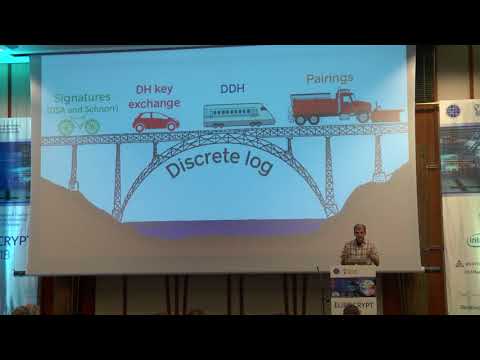Welcome to the resource topic for 2017/1113
Title:
The Discrete-Logarithm Problem with Preprocessing
Authors: Henry Corrigan-Gibbs, Dmitry Kogan
Abstract:This paper studies discrete-log algorithms that use preprocessing. In our model, an adversary may use a very large amount of precomputation to produce an “advice” string about a specific group (e.g., NIST P-256). In a subsequent online phase, the adversary’s task is to use the preprocessed advice to quickly compute discrete logarithms in the group. Motivated by surprising recent preprocessing attacks on the discrete-log problem, we study the power and limits of such algorithms. In particular, we focus on generic algorithms – these are algorithms that operate in every cyclic group. We show that any generic discrete-log algorithm with preprocessing that uses an S-bit advice string, runs in online time T, and succeeds with probability \epsilon, in a group of prime order N, must satisfy ST^2 = \tilde{\Omega}(\epsilon N). Our lower bound, which is tight up to logarithmic factors, uses a synthesis of incompressibility techniques and classic methods for generic-group lower bounds. We apply our techniques to prove related lower bounds for the CDH, DDH, and multiple-discrete-log problems. Finally, we demonstrate two new generic preprocessing attacks: one for the multiple-discrete-log problem and one for certain decisional-type problems in groups. This latter result demonstrates that, for generic algorithms with preprocessing, distinguishing tuples of the form (g, g^x, g^{(x^2)}) from random is much easier than the discrete-log problem.
ePrint: https://eprint.iacr.org/2017/1113
Talk: https://www.youtube.com/watch?v=9Gms2VCzluA
See all topics related to this paper.
Feel free to post resources that are related to this paper below.
Example resources include: implementations, explanation materials, talks, slides, links to previous discussions on other websites.
For more information, see the rules for Resource Topics .
